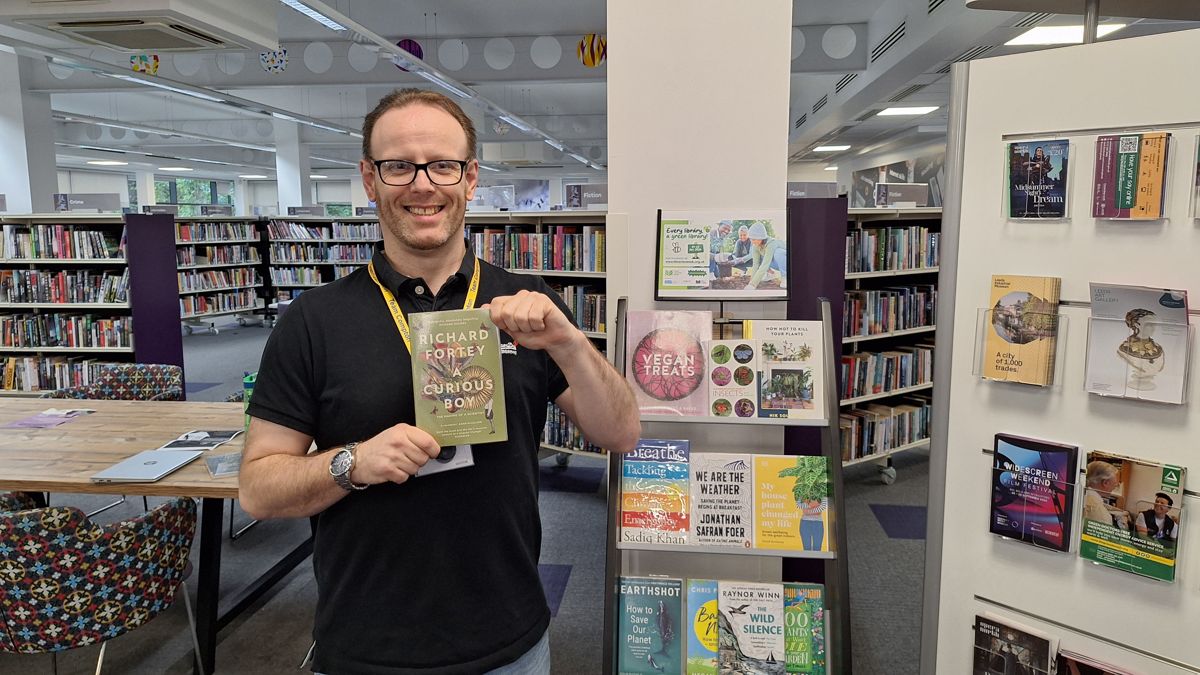Leeds Libraries are championing sustainability with their ‘Green Reads’ initiative, featuring books on nature and eco-friendly practices while helping to reduce the city’s carbon footprint by an impressive 2,550,000kg. Through engaging events during Green Libraries Week, such as interactive workshops and sessions for children, they are inspiring the community to embrace environmental stewardship as part of Leeds’ pledge for carbon neutrality by 2030.
How are Leeds Libraries promoting sustainability?
Leeds Libraries are promoting sustainability through the ‘Green Reads’ initiative, showcasing books on nature and eco-friendly practices. They’ve reduced the city’s carbon footprint by 2,550,000kg, offer educational activities during Green Libraries Week, and support the city’s pledge for carbon neutrality by 2030.
The Role of Libraries in Promoting Sustainability
Libraries in Leeds are turning a new leaf by displaying an array of books dedicated to nature and climate action. In alignment with Green Libraries Week, these hubs of knowledge are showcasing a unique ‘Green Reads’ initiative. This includes a selection of books packed with gardening insights, eco-friendly culinary creations, and crucial information on the pressing climate crisis. It’s estimated that patrons of Leeds Libraries have significantly reduced their carbon footprints—by a staggering 2,550,000kg in the past year alone. This figure is comparable to negating the carbon emissions from approximately 1,300 flights from Leeds to New York.
The libraries don’t just stop at offering books. They are also determined to equip visitors with actionable advice and facts to contribute positively to the planet’s health. The Green Reads displays are just one facet of an array of activities planned for the week. These are carefully designed to cast a spotlight on the incremental changes libraries and their users can make to foster environmental stewardship.
Furthermore, a digital showcase of historic images underpins the significance of Leeds’ green spaces. These pictures, from the early 20th century to the 1700s, are more than mere snapshots; they are testaments to the city’s enduring commitment to its natural heritage. This exhibition, including a gift of land for public enjoyment and traditional festivities, underscores the intrinsic value of preserving and cherishing local parks and nature.
Engaging Activities and Historical Showcases
During Green Libraries Week, Leeds Libraries are not only celebrating the past but are also looking forward to the future with a range of interactive events. Among them is a code club dedicated to devising innovative solutions for ocean cleanup and efficient recycling practices. This initiative not only educates but also actively involves individuals in tackling environmental challenges.
Additionally, there will be sessions where green-thumbed speakers engage with library social clubs, while Story and Rhyme events will pay homage to wildlife. The youngest members of the community are not left out, with eco-themed activities planned for various kids clubs across the city. In these sessions, children will have the opportunity to learn about sustainability through interactive play and storytelling, planting the seeds for a greener future.
In essence, these events are more than just educational; they’re a celebration. From the jubilation of Maypole dancing in the historic Children’s Day at Roundhay Park to the appreciation of flora and fauna in modern times, the library is where communities unite in the spirit of nature conservation.
Leeds’ Pledge Toward Carbon Neutrality
Councillor Mary Harland, a leading figure in community services, has underlined the city’s pledge to achieve carbon neutrality by 2030. To realize this ambitious goal, she emphasizes the necessity of a collaborative effort across all community sectors. Libraries, seen as cornerstones of community education and interaction, are pivotal in this push towards sustainability.
Harland points out that libraries serve as ideal venues for individuals to access crucial information on how to play their part in this global effort. By participating in Green Libraries Week, Leeds libraries are showcasing a myriad of ways for the community to get involved in a setting that’s both welcoming and conducive to learning.
The week’s events and the ongoing commitment of Leeds libraries send a clear message: taking steps toward sustainability can be informative, accessible, and enjoyable. By fostering a space where practical advice and community spirit go hand-in-hand, Leeds is galvanizing its citizens to make choices that count for the planet.
For more details on the Green Libraries Week initiatives, including a full calendar of events and activities, interested individuals can visit the Green Libraries Week | Leeds Library website. Here, they can find all the resources needed to become part of Leeds’ green transformation.
ENDS
- Leeds Libraries are promoting sustainability through the ‘Green Reads’ initiative, focusing on books about nature and eco-friendly practices.
- The initiative has contributed to a significant reduction in the city’s carbon footprint by 2,550,000kg over the past year.
- During Green Libraries Week, the libraries are hosting various interactive events, including workshops and sessions for children to promote environmental stewardship.
- A digital showcase of historic images highlights Leeds’ commitment to green spaces, signifying the importance of preserving local nature.
- Councillor Mary Harland emphasizes the necessity of community collaboration in achieving the city’s goal of carbon neutrality by 2030 through educational programs at the libraries.
